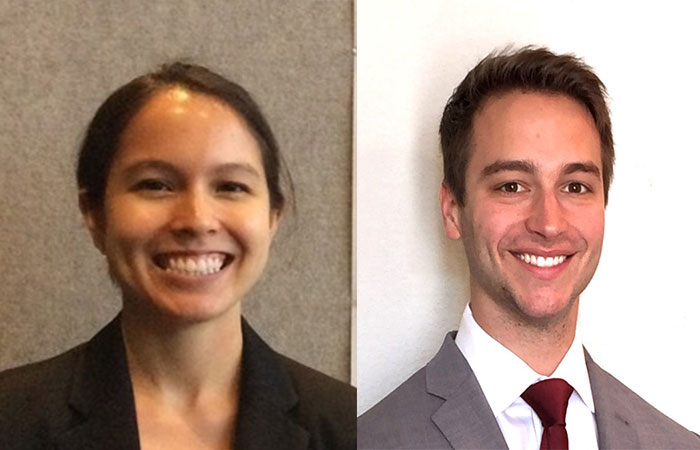A student-led effort to help the underserved in Texas
By Jan Jarvis

Every year the Association for Prevention Teaching and Research recognizes students who have a desire to integrate public health into their future clinical practices by naming them Paul Ambrose Scholars.
David Preston and Marisa Tan, third year DO/MPH students from UNT Health Science Center, certainly fit the bill.
From the start, each student has shown an interest in helping underserved populations in Texas, said Patricia Connally, D.O., Assistant Professor of Geriatrics. Both are in the dual degree program that is a collaborative partnership between the Rural Scholars Program in the Texas College of Osteopathic Medicine and the School of Public Health.
“David and Marissa both came to TCOM with strong interests in health disparities. Through their studies, they have been afforded knowledge and opportunities to turn motivation into service,” Dr. Connally said. ”They have worked very hard, and we are so pleased that their efforts are being recognized nationally.”
Preston and Tan are among 40 students from 34 academic health professions institutions selected for the Paul Ambrose Scholars Program, which prepares participants to be leaders in addressing population health challenges at the national and community level.
Scholarships are awarded to students to conduct community-based health education projects. As part of the scholarship, Preston and Tan also attended the Public Health Leadership Symposium, which exposed them to how leaders from around the country are addressing health care challenges.
Preston’s project is focused on addressing key barriers to accessing health care for the thousands of refugees who relocate to Tarrant County annually. Although there are several organizations in Fort Worth that are helping refugee families, there is still a great need for better health care access, he said.
“What I hope to do is to start a program that partners refugee families with health professions students who have a familiarity Fort Worth’s health care system,” Preston said. “As advocates for health care needs, students will be able to assist in short-term obstacles such as appointment attendance, prescription filling, and correspondence, while at the same time teaching long-term skills in traversing the health care system and accessing health care benefits.”
Tan’s area of interest is diabetes prevention in the Rio Grande Valley, where nearly 20 percent of the patients have the chronic disease. She hopes to facilitate a diabetes prevention program to combat obesity, a major risk factor for diabetes.
She applied to the Paul Ambrose Scholar Program because of her interest in health equality, which was inspired by reading stories of trauma, abuse, and hardship in disadvantaged communities.
“It’s always easier to blame the marginalized for their circumstances – as we know that every nation has its scapegoats,” she said. “I’m moved by these stories to consider barriers to health as true obstacles, so that I can work creatively in partnership with the community to overcome them.”





Social media